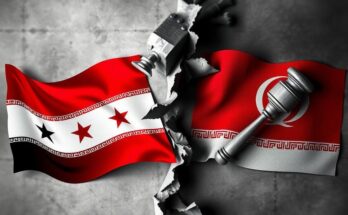Congressional leaders have postponed discussions on federal funding for disaster relief following Hurricane Helene until after the elections to avoid political disputes. Although there are sufficient funds for immediate relief, past experiences with disaster funding debates have shown the potential for divisiveness among lawmakers, particularly in an election context. This delay aims to prevent political fallout while preparing for funding needs after November 5.
In the wake of Hurricane Helene, congressional leaders have opted to postpone any discussions regarding federal disaster funding until after the upcoming elections. Speaker Mike Johnson and other officials assert that existing government resources are adequate for the immediate future, allowing for a comprehensive assessment of needs post-November 5. However, this decision also stems from a desire to avoid politically contentious disputes that often arise in the context of disaster funding just ahead of elections. Past experiences, notably those involving funding for Hurricane Katrina in 2005 and Hurricane Sandy in 2012, have revealed that such debates can split parties and provoke public criticism. Moreover, despite the hurricane’s impact being felt primarily in Republican-led Southern states, there are concerns that any push for disaster aid might lead conservatives to advocate for spending cuts, igniting fierce debates over budgetary allocations. These dynamics present a precarious situation just weeks before critical congressional elections, where Democrats could leverage Republican demands for federal assistance as a point of contention, given the latter’s historical resistance to various spending bills. The anticipated legislative efforts to secure additional funding will likely commence after the elections, further complicating the political landscape.
Disaster funding is a critical and often contentious aspect of U.S. politics, particularly in the aftermath of significant natural disasters. Historically, funding for disaster relief has sparked intense political disagreements, especially surrounding issues of fiscal responsibility and allocation of government resources. As seen in past instances, such as the funding debates following Hurricane Katrina and Hurricane Sandy, these discussions can become divisive, complicating the government’s ability to deliver timely assistance. This situation is further exacerbated in an election year, when political motivations can cloud genuine humanitarian needs, prompting leaders to carefully navigate these waters to avoid electoral backlash.
The decision to defer discussions on federal disaster funding for Hurricane Helene until post-election reflects a strategic political choice aimed at mitigating potential conflicts. Recognizing the pitfalls of contentious funding debates during an election cycle, congressional leaders prioritize maintaining party unity and avoiding public scrutiny. As the legislative focus shifts to after the elections, the responsiveness of lawmakers to their constituents’ needs in the face of recent disasters will be closely monitored.
Original Source: www.nytimes.com




